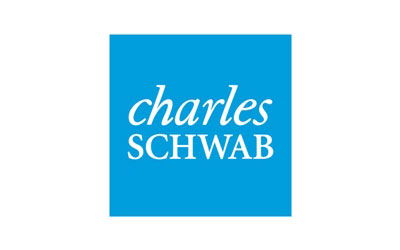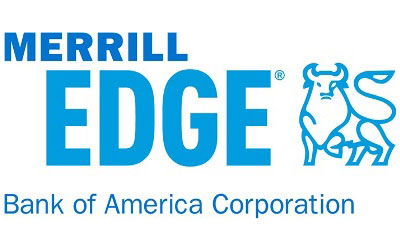Getting started with investing can feel like a challenge, but it doesn’t have to be. Thanks to online brokers, buying stocks is easier and more affordable than ever. The tricky part? Figuring out which platform is right for you.
Some brokers keep things simple with commission-free trades and intuitive apps. Others offer in-depth research and personalized guidance. The best choice depends on your goals, budget, and how much help you want along the way.
7 Best Online Stock Brokers for Beginners
To help you make the best decision, we’ve narrowed it down to six top-rated brokers. Each one stands out for beginner-friendly features, whether it’s low fees, educational resources, or hands-on support. Here’s what you need to know about each option.
1. Robinhood
Robinhood made a name for itself by offering commission-free stock and ETF trading, making it one of the most accessible brokers for beginners.
2. Webull
Webull is a commission-free trading platform that appeals to both beginners and experienced investors looking for advanced tools without traditional brokerage fees.
3. Charles Schwab
Charles Schwab is a trusted brokerage that appeals to both beginners and experienced investors.
4. Public
Public.com is a beginner-friendly brokerage that makes investing more accessible by combining commission-free trading with a social, community-driven experience.
5. Fidelity
Fidelity Investments is a well-rounded brokerage ideal for both beginners and seasoned investors.
6. SoFi Invest
SoFi Invest is a beginner-friendly investment platform that makes it easy to start investing with commission-free trades and no account minimums.
7. Merrill Edge
Merrill Edge is an online brokerage that blends Bank of America’s banking services with Merrill Lynch’s investment expertise.
Why Beginners Should Consider Online Stock Brokers
Diving into the world of stock trading can be both exciting and intimidating. As a beginner, you might have certain apprehensions, especially with traditional stock trading often being associated with experienced and wealthy individuals.
However, with the advent of online brokerages, the investment landscape has dramatically transformed, making it more accessible for everyone. So why should you, as a beginner, consider going the online route? Let’s break it down.
Leveling the Playing Field
Traditionally, stock trading was a complex system with many barriers to entry. It was time-consuming, requiring regular phone calls with brokers, and often demanded a substantial initial investment.
However, online stock trading platforms have simplified this process, allowing anyone with an internet connection to participate in the market. They’ve effectively democratized stock trading, enabling a broader demographic to engage in investment activities.
Cost-Effectiveness
Cost has been one of the biggest hurdles for beginners interested in stock trading. High brokerage fees were once a significant barrier to entry. Online stock brokers have dramatically reduced this burden by offering lower trading fees compared to their traditional counterparts.
Many even offer commission-free trades, which is especially beneficial for those who are just dipping their toes in the investment waters and may not have a significant amount to invest yet.
Flexibility and Control
With an online broker, you get the advantage of real-time trading from the comfort of your home, or anywhere else for that matter. You have more control over your trades, with the ability to review and modify your orders whenever you see fit. This flexibility can be a game-changer for beginners who are still learning the ropes and need the freedom to make adjustments as they see fit.
Access to Tools and Education
Most online brokers provide a wealth of resources to help you understand the stock market better. These resources often include educational articles, webinars, video tutorials, and even simulated trading environments. You can learn at your own pace, apply your knowledge in a risk-free environment, and then proceed with more confidence when you’re ready.

Busting the Myth: Stock Trading is Not Just for Experts
You might be thinking, “Sure, these benefits sound great, but isn’t stock trading still a field best left to the experts?” This is a common misconception, but it couldn’t be further from the truth. While knowledge and experience undoubtedly play a role in successful investing, the barrier to entry has significantly decreased with online brokerage accounts.
They’ve built platforms that cater to investors of all experience levels, with easy-to-use interfaces, educational content, and customer support to guide you through your investment journey. In fact, the rise of online trading has given birth to a new generation of investors who’ve started with little to no knowledge of the stock market.
Choosing Your Online Broker: Essential Criteria to Consider
Selecting an online broker as a beginner can seem daunting. However, by focusing on the right criteria, you can make a well-informed decision that suits your individual needs and goals. Here are the key factors you should consider when choosing your online stock broker.
User-Friendly Platform
As a beginner, the last thing you want is to grapple with a complicated platform while trying to understand the intricacies of stock trading. Hence, a user-friendly interface is essential.
An intuitive platform will make navigation a breeze, allowing you to focus on your investment decisions rather than struggling with complex tools. Look for brokers that offer clear layouts, easy-to-find features, and streamlined processes for trading.
Educational Resources
Education is paramount when you’re getting started in investing. The best online brokers provide various learning materials, including tutorials, webinars, articles, and even a glossary of trading terms.
These resources can help you understand complicated financial concepts, making it easier for you to understand market trends and make informed decisions. Ensure the broker you choose places a strong emphasis on education and continuous learning.
Customer Support
No matter how user-friendly a platform is, you’re likely to encounter queries or issues that need resolution. This is where robust customer support comes in.
A good online broker should offer responsive, efficient, and friendly customer service, ready to assist you via multiple channels – be it phone, email, or live chat. Remember, as a beginner, having readily available support can be a significant confidence booster.
Fees and Commissions
Even the smallest fees can add up over time and eat into your returns. So, it’s essential to understand the fee structure of any online broker you consider. This can include trading fees, account maintenance fees, withdrawal fees, and more. Many online brokers now offer commission-free trades, which can be particularly advantageous for beginners starting with a smaller investment.
Account Minimums
Some online brokers require you to deposit a minimum amount to start trading. This can be a hurdle for beginners who are looking to start small. Therefore, finding a broker with low or no account minimums can be a significant advantage when you’re just getting started. It allows you to dip your toes into investing without committing a substantial sum upfront.
Diverse Investment Options
While you might start with trading stocks, having a range of investment options can be beneficial as you grow and diversify your portfolio. Look for an online brokerage account that offers various investment products, such as bonds, ETFs (exchange-traded funds), mutual funds, and more. Having these options at your disposal allows for more flexibility in your investment strategy.
Security
With the increasing number of cyber threats, security has never been more critical. You want to ensure that the online broker you choose uses top-tier encryption and security measures to protect your personal information and investments. This can include two-factor authentication, biometric recognition, and advanced encryption technologies.
Tips for Getting Started With Online Stock Trading
Stepping into the world of online stock trading can be thrilling. The possibility of seeing your money grow can be enticing, but you also need to approach this journey with a strategic and educated mindset. Here are some practical tips to get you started on the right foot.
Understand Your Investment Goals
Before you make your first trade, take some time to understand your investment goals. Are you saving for retirement, a down payment on a house, or your child’s college education? Having a clear idea of your goals will help you make informed decisions about the types of investments you want to make.
Start Small and Gradually Increase Your Investments
As a beginner, it’s wise to start small. You might be eager to dive in, but starting small allows you to get a feel for trading without risking too much. As you become more comfortable and experienced, you can gradually increase your investments.
Diversify Your Portfolio
Don’t put all your eggs in one basket. Diversification, or spreading your investments across various assets, is a key strategy to manage risk. By diversifying your portfolio, you can protect yourself from significant losses if one of your investments underperforms.
Practice with a Demo Account
Many online brokers offer demo or “paper” trading accounts. These accounts allow you to practice trading with virtual money. It’s a great way to learn the ropes, try out different strategies, and understand the dynamics of the market without risking real money.
Keep Emotions in Check
Investing can be an emotional rollercoaster. The value of your investments can go up and down, but remember to stay calm and stick to your investment plan. Avoid making impulsive decisions based on short-term market fluctuations.
Develop a Disciplined Investment Strategy
Having a disciplined investment strategy means making thoughtful and researched decisions rather than chasing ‘hot’ tips or trends. This strategy involves regularly reviewing and adjusting your portfolio, reinvesting dividends, and not being swayed by market volatility.
Embrace Continuous Learning
The investment world is dynamic and ever-changing. Make an effort to learn continuously about different investment products, market trends, and trading strategies. Take advantage of the educational resources offered by your online broker.
Consult a Financial Advisor
While online stock trading can be done independently, consulting a financial advisor can be beneficial. They can provide personalized advice tailored to your financial goals and risk tolerance.
Frequently Asked Questions
What is a brokerage account?
A brokerage account is an arrangement between an investor and a licensed brokerage firm that allows the investor to deposit funds with the firm and place investment orders through it. Essentially, it’s the account you use to make trades and hold your investments. The brokerage acts as the intermediary between you and the markets.
In a typical brokerage account, you can invest in a wide variety of securities, including stocks, bonds, mutual funds, and ETFs (exchange-traded funds). There are also different types of brokerage accounts, like individual or joint accounts, retirement accounts, and education savings accounts, each serving different investment purposes and offering varying tax benefits.
Why should I consider online stock trading?
Online stock trading offers a host of benefits, including easy access to financial markets, lower transaction costs, real-time trading, a wealth of educational resources, and the ability to trade at your own pace and convenience.
How much money do I need to start online trading?
The amount needed to start online trading can vary greatly depending on the broker you choose. Some online brokers require minimum deposits, while others do not. It’s possible to start trading with a small amount, but you should only invest money that you can afford to lose.
What are the risks of online stock trading?
Like any investment, online stock trading comes with risks. The value of your investments can fluctuate based on market conditions, which can lead to losses. It’s also possible to lose money due to poor investment decisions. It’s important to educate yourself, develop a solid investment strategy, and consider diversifying your investments to manage these risks.
What is a stock broker?
A stock broker is a professional who executes buy and sell orders for stocks and other securities on behalf of clients. Online stock brokers offer platforms where you can conduct these transactions yourself.
How do online stock brokers make money?
Online stock brokers make money in several ways. Some charge commissions on trades, while others offer commission-free trades but may charge other types of fees, such as account maintenance fees or withdrawal fees. Some brokers also earn money from interest on cash in trading accounts or by lending out securities in margin accounts.
What is diversification?
Diversification is a risk management strategy that involves spreading your investments across various types of assets, such as stocks, bonds, ETFs, etc. The idea is to reduce risk by investing in different areas that would each react differently to the same event.
Is my money safe with online brokers?
Most reputable online brokers are members of the Financial Industry Regulatory Authority (FINRA) and the Securities Investor Protection Corporation (SIPC), which provide certain protections for investors. However, while these protections can safeguard your money if the brokerage fails, they do not protect against losses from trading.










